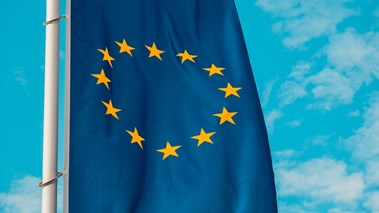INFORMAÇÃO
Por favor, aguarde...


Pedido submetido com sucesso.

EU Portuguese Presidency launches "Horizon Europe"
The Horizon Europe programme launched on 2 February, with a budget of around 95 billion euros for research and innovation activities between 2021-2027 all across Europe.
Horizon Europe is the ninth European framework programme for research and innovation, following Horizon 2020 (2014-2020) and will be the largest programme ever to take place in Europe. Its launch by the Portuguese Presidency of the EU is promoted alongside a process to mobilise all of Europe for its coordination with structural funds and, most importantly, with national recovery and resilience programmes being prepared for each Member State under the 'Next Generation EU, 2021-26' programme.
The European Union is expected to lead the dual green and digital switchover in association with a resilient recovery through a renewed European Research Area (ERA), by effectively increasing public and private investment in R&D, notably in the context of the European Commission's recent reaffirmation of the 3% target for public and private R&D investment in terms of gross domestic product by 2030.
Horizon Europe is thus founded on three terms of reference:
The Horizon Europe Programme includes four pillars for implementation:
Pillar 1: 'Excellent Science', will support scientific excellence in terms of human resources and infrastructure, in particular through the European Research Council (ERC), the Marie Skłodowska-Curie Actions (MSCA);as well as support for Research Infrastructures (ESFRI);
Pillar 2: 'Global Challenges and European Industrial Competitiveness', which will support research and development activities in 6 areas (or clusters): 1) Health; 2) Culture, Creativity and Inclusive Society; 3) Civil Security for Society; 4) Digital, Industry and Space; 5) Climate, Energy and Mobility; 6) Food, Bioeconomy, Natural Resources, Agriculture and Environment. Within these 6 areas, Pillar 2 also includes:
Pillar 3: 'Innovative Europe', with support for new market-building activities and SMEs, including new support for the new European Innovation Council (EIC), support for European Innovation Ecosystems (EIE) and the European Institute of Innovation and Technology (EIT). The EIT legislation was recently revised, on 29 January, already under the Portuguese Presidency, to incorporate a more inclusive and open action for all of Europe and two new areas of intervention through KICs - Knowledge Integrated Communities (namely oceans and creative industries in addition to the initial areas of health, digital, energy, materials and climate).
Pillar 4. 'Widening Participation and Strengthening the European Research Area', including support for broadening participation and strengthening the European Research Area, through a set of different financing instruments aimed at networking in terms of human resources and at the institutional level.
The implementation of Horizon Europe will be coordinated by the European Commission's Directorate-General for Research, DG RTD, following on from the previous European Framework Programmes for Research and Innovation. More details at https://ec.europa.eu/info/horizon-europe_en
In the case of Portugal, the strategy for strengthening national participation in the 'Horizon Europe, 2021-27' programme is coordinated and disseminated through PERIN - 'Portugal in Europe Research and Innovation Network', which includes the main funding and promoting agencies, namely the FCT, ANI, AICIB, PT Space, the ERASMUS Agency and DGES, in close articulation with the offices promoting European programmes in academic and research institutions, as well as in companies, business associations and business incubation and interface centres.
Portugal aims to double national participation in the 'Horizon Europe, 2021-27' programme, as compared to that of the 'Horizon 2020' programme (2014-2020), and attract around two billion euros for research and innovation activities on a competitive basis by the public and private sectors, including SMEs (compared to around 1.1 billion euros attracted between 2014 and 2020 through support under the H2020 Programme, also in competitive terms).
Review the highlights of the event here